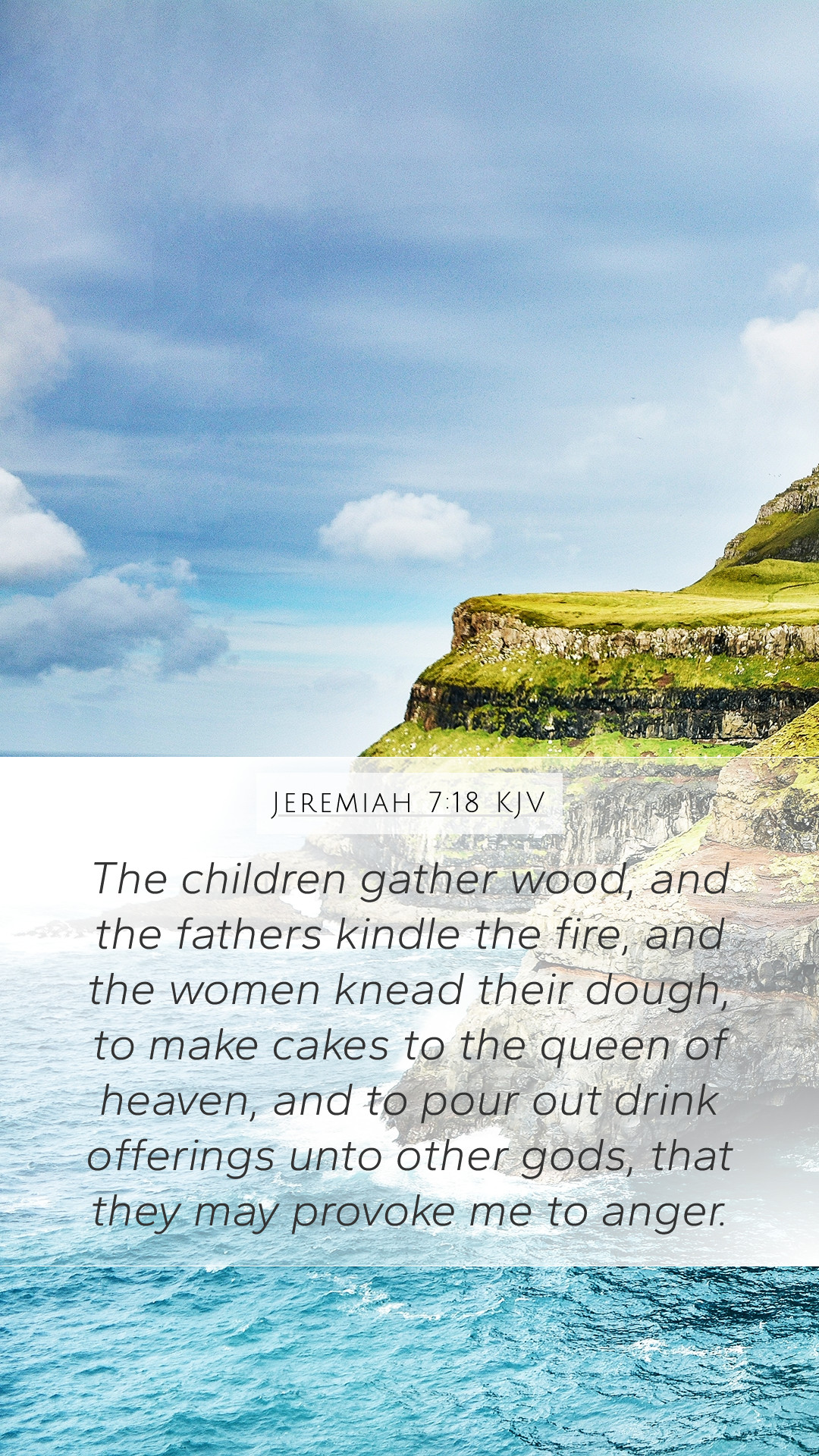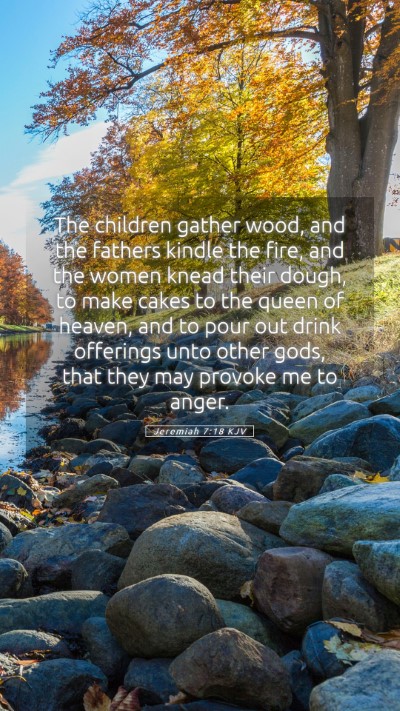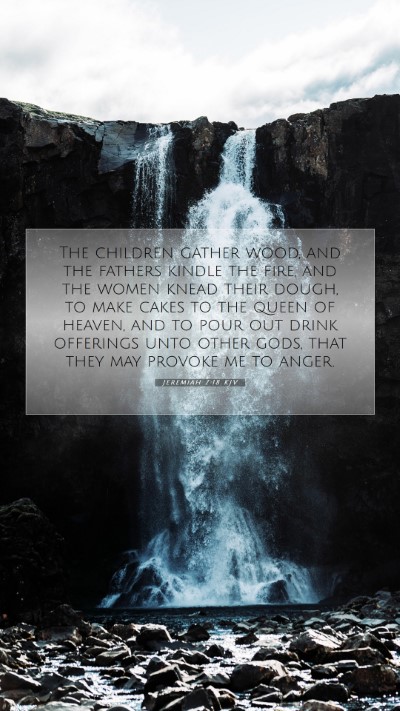Understanding Jeremiah 7:18
Bible Verse: Jeremiah 7:18 - "The children gather wood, and the fathers kindle the fire, and the women knead their dough, to make cakes to the queen of heaven, and to pour out drink offerings unto other gods, that they may provoke me to anger."
Bible Verse Meanings and Interpretations
This verse from Jeremiah 7:18 holds profound implications regarding idolatry and the cultural practices of ancient Israel. The commentary from Matthew Henry, Albert Barnes, and Adam Clarke reveals critical insights into the societal and spiritual decay occurring during Jeremiah's time. Here, the prophet Jeremiah critiques the people of Judah for their idolatrous practices, particularly their worship of the 'queen of heaven,' which symbolizes their disobedience and mockery of God's commandments.
Context and Historical Background
To understand this scripture fully, it's essential to examine the historical context. The kingdom of Judah had strayed from worshipping the one true God and had instead turned to pagan practices, adopting customs that were prevalent in surrounding nations. Albert Barnes notes that this idolatrous worship often involved rituals that symbolized fertility and prosperity, ideas that were deeply cherished by the people.
The Role of Each Group
- Children: They gather wood needed for the sacrificial fires.
- Fathers: They kindle the fire, actively participating in the idol worship.
- Women: They knead dough to make cakes, an act of devotion that reflects their commitment to these false deities.
This division of roles emphasizes the collective participation of all societal members in these acts of idolatry, which leads to God's anger as highlighted in this verse.
Interpretation and Spiritual Insights
Commenting on this verse, Adam Clarke elaborates on the significance of the 'queen of heaven.' This title often refers to the ancient goddess Astarte, associated with love and war, and her worship meant straying from the covenant God established with Israel. The practice of making cakes and offering drink offerings can be seen as a form of communal solidarity in idolatry.
Matthew Henry cautions that this passage illustrates the devastating consequences of turning away from God: the more people engage in sinful practices, the more they provoke God's anger. Thus, this scripture serves as a call for self-examination—encouraging believers to reflect on their lives and worship practices.
Application of the Verse
The application of Jeremiah 7:18 is especially relevant today. Individuals and communities must consider how they may unknowingly engage in idolatry—whether through modern distractions, materialism, or misplaced priorities. The verse challenges us to evaluate our devotion and drive toward genuine worship that focuses on God rather than worldly idols.
Conclusion on Understanding Scripture
In conclusion, the insights gained from Bible study insights, biblical exegesis, and thorough scripture analysis guide us toward a deeper understanding of Scripture. Jeremiah 7:18 serves as a timeless reminder of the importance of fidelity in our worship and the dangers inherent in all forms of idolatry.
Related Bible Cross References
- Exodus 20:3-5 - The first and second commandments regarding idolatry.
- Jeremiah 44:17-19 - Further condemnation of idolatrous practices by the people.
- Isaiah 44:9-20 - Exposition on the futility of idolatry.


